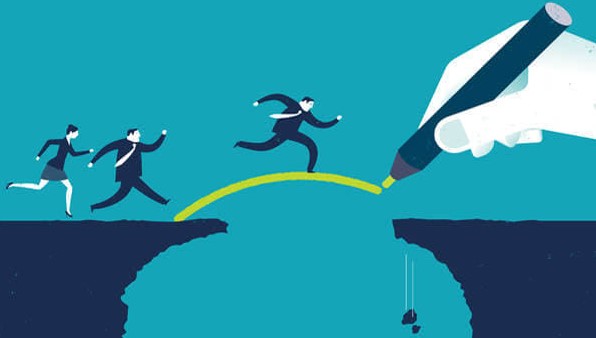One of the best ways that you can grow in your career is to identify key skills that you need, and make sure you’re developing them throughout your life. There are many ways that you can expand your key skills, and make sure that you’re developing them in the workplace. Workplace skills are one of the most important factors when it comes to increasing recruitment and employment, and should be invested in by businesses and individuals alike. Investing in the development of your workplace skills is definitely one of the best investments that you will ever make.
There are many reasons why someone would want to develop their skill set in order to advance their career. For many people who are just starting out in their career, building and developing your skills is a good thing to do if you want to end up in the field that you want to. Furthermore, people who are returning to work after a long gap due to having children or caring for a family member may want to develop their skills to keep up with a modern workplace. Developing your skills is also a good idea for people who want to take the next step and get that promotion.
However, what can be more difficult is identifying the right workplace skills that you will need for your career. If you invest in the wrong skills, it may not actually help you when it comes to developing your career at all. If the skills that you develop aren’t relevant to what you need to do, while they may be personally useful, won’t help you take the next step in the workplace. If you want to find the right workplace skills for you, you will need to conduct a skills assessment on yourself and look at your industry to find the main ways in which you need to develop.
Conducting A Skills Assessment
One of the best things to do when trying to look for which skills that you need is to identify the skills that you already have. Through your previous experience or your qualifications, such as your A Levels or a degree, you probably already have many great skills that are transferable to the workplace. Once you have identified the many skills you already have, you can choose the ones which you may need to develop.
For example, there are soft and hard skills. Hard skills are job-specific skills and qualifications, which will be earned through experience and training. For example, bricklayers will have construction NVQs that demonstrate their expertise in that occupational role. Social workers or therapists will usually have a specific qualification that demonstrates their skills. However, there are also soft skills, which include things such as working in a team, communication, and solving problems effectively. You might not have had any specific training to develop these skills, but they are still very useful in the workplace nonetheless. Having a good mix of soft and hard skills are very useful for workers if they want to upskill and find the right career path.
In order to develop your hard skills, you may want to invest in specific training and courses that will teach you the skills that you need. To develop your soft skills, you may need to engage with team building exercises, communication seminars, or even problem solving books that will help you to expand on these soft skills and take your career to the next level. Developing soft skills is particularly useful for people who want to become managers in their team.
Here are 3 important things to consider if you want to find the right workplace skills for you:
Update Your Skills
You may be incredibly adept at using some forms of technology or using a framework, however, this may have changed considerably over the past couple of years. For example, many computer programmes are very different today than they were 10 years ago – you may want to consider updating your skills so that they will be relevant in today’s world.
Consider The Future
One of the most important things to consider when it comes to skills development is developing skills for the future. For example, the push for sustainability has resulted in massive upheaval for many companies, who have had to change their operations in order to be sustainable. Investing in green skills training could help you understand modern sustainability in the workplace as well as changes you may have to make in your job to keep up with the modern green economy.
Fill Your Skills Gaps
When you do your skills audit, you should find the deficits and skills gaps that you’d like to build on. For example, do you often find yourself needing help when it comes to number skills? This may be a good task to set your sights on if you find that it’s impacting your work. Finding the right skills for you involves knowing your skills gaps, and developing these to make you more well-rounded in the workplace.

